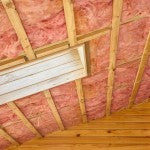Guides & News

Some things that you should know before insulat...
We all dread getting the energy bills during the winter months because keeping the house warm during the coldest months of the years suddenly gets a lot more expensive; and...
Some things that you should know before insulat...
We all dread getting the energy bills during the winter months because keeping the house warm during the coldest months of the years suddenly gets a lot more expensive; and...
When and where to use Spray Foam Insulation
Spray polyurethane foam, also known as SPF, is a heat activated polymer which is used for foam insulation. This insulation is created by mixing a couple of ingredients on the site using...
When and where to use Spray Foam Insulation
Spray polyurethane foam, also known as SPF, is a heat activated polymer which is used for foam insulation. This insulation is created by mixing a couple of ingredients on the site using...
What Insulation Should I Use when Insulating My...
If it is formulated as simply as possible, then insulation serves ultimately to prevent or slow down heat exchange between two areas. Ideally, the heat stays in the house and...
What Insulation Should I Use when Insulating My...
If it is formulated as simply as possible, then insulation serves ultimately to prevent or slow down heat exchange between two areas. Ideally, the heat stays in the house and...
R-Max Polyiso: Why should I Install this Ahead ...
Since polyisocyanurate is a thermoset polymer, it has a substantially higher ignition and melting temperature when compared to other similar insulation foams. Most of the gasses which are caught inside...
R-Max Polyiso: Why should I Install this Ahead ...
Since polyisocyanurate is a thermoset polymer, it has a substantially higher ignition and melting temperature when compared to other similar insulation foams. Most of the gasses which are caught inside...
Insulation4US is an insulation supplier in Manh...
Every area has its own need for insulation types. Manhattan is usually a humid continental area and can have a very severe winter for which Insulation4US provide you with a...
Insulation4US is an insulation supplier in Manh...
Every area has its own need for insulation types. Manhattan is usually a humid continental area and can have a very severe winter for which Insulation4US provide you with a...
Top 10 tips when insulating your house
You build your house once in a lifetime and as a family member you will always like to make it the best at that one time. One wrong decision can...
Top 10 tips when insulating your house
You build your house once in a lifetime and as a family member you will always like to make it the best at that one time. One wrong decision can...
